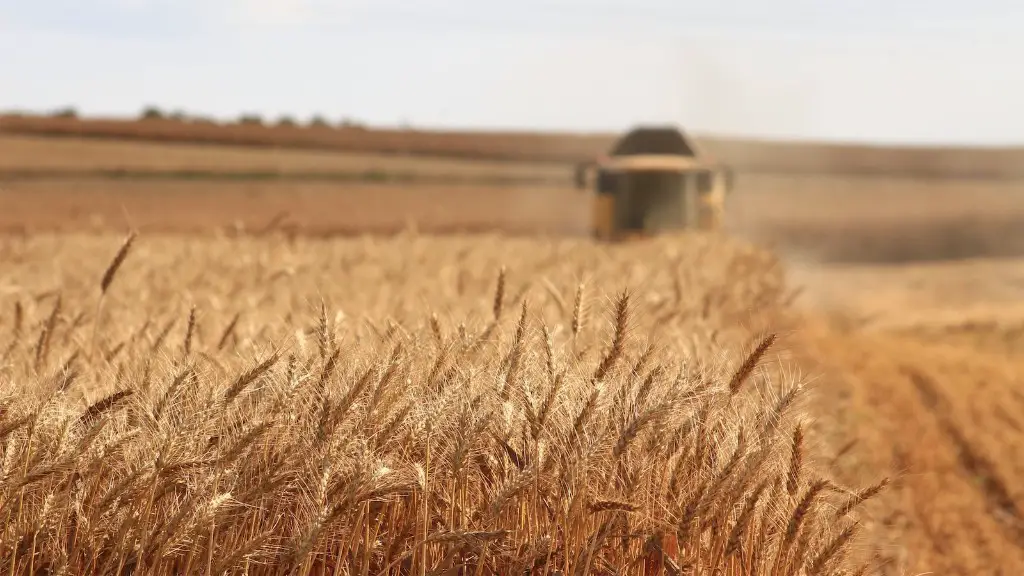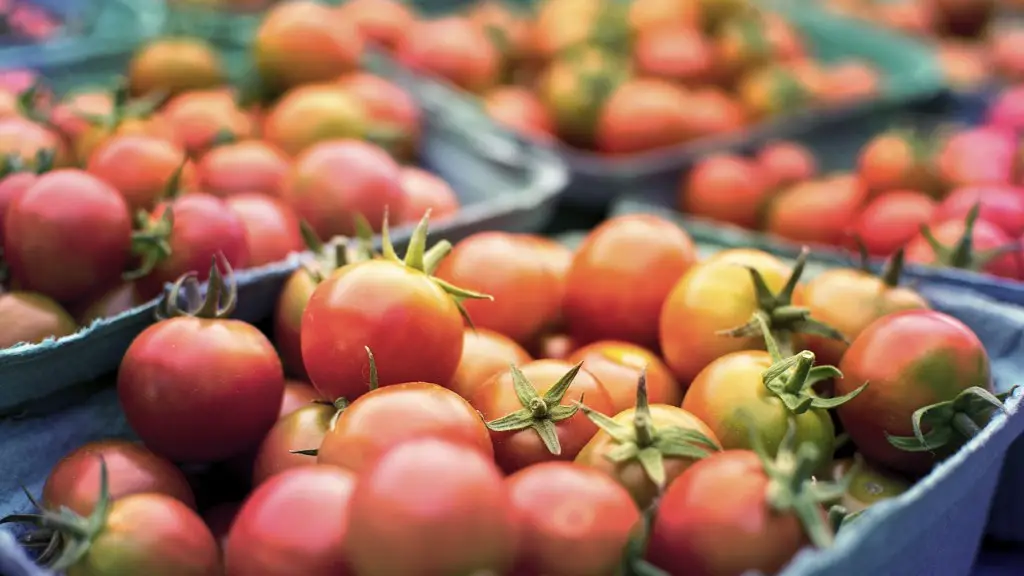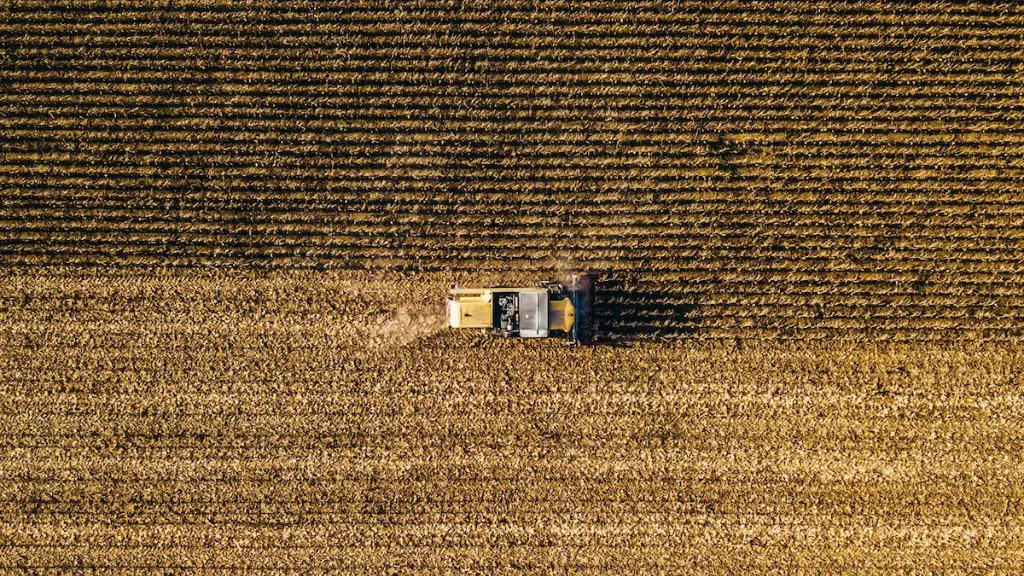Though often overlooked, urban agriculture can play a significant role in improving food security. Food security exists when all people have physical and economic access to safe and nutritious food. Unfortunately, many people living in large cities face significant barriers to food access, such as high costs, lack of transportation, and food deserts. Urban agriculture has the potential to address many of these issues.
Local food production can make fresh, healthy food more accessible and affordable for city dwellers. Community gardens, farmers markets, and food hubs can make it easy for people to get the food they need. Urban agriculture can also create jobs and provide training in food production and distribution.
In addition to increasing access to food, urban agriculture can also help to improve the quality of food available. By growing food locally, we can reduce our reliance on imported food, which is often of lower quality. Local food production can also help to reduce food waste, as food can be consumed closer to where it is grown.
Urban agriculture is not a panacea for food insecurity, but it can be a powerful tool for making healthy food more accessible and affordable. With the right support, urban agriculture can play a vital role in improving food security for all.
Growing food in cities has many benefits that can help to improve food security. One benefit is that it can help to increase the availability of fresh, nutritious food. Urban agriculture can also help to create jobs and economic opportunities, which can be especially important in low-income communities. Additionally, urban agriculture can help to build community ties and increase social cohesion.
Does urban farming have benefits beyond food security?
Many organizations see urban agriculture as a way to improve food security. It also offers environmental, health, and social benefits.
Urban agriculture can help to improve food security by providing fresh, nutritious food to urban residents. It can also help to reduce food prices, as well as food waste and environmental pollution.
Health benefits of urban agriculture include increased access to fresh fruits and vegetables, and improved mental and physical health. Social benefits include increased social cohesion and community involvement.
Urban agriculture can have a positive impact on the environment by reducing greenhouse gas emissions, improving air quality, and reducing water and soil pollution.
Overall, urban agriculture offers a range of benefits that can improve the lives of city dwellers.
Urban agriculture is a great way to provide fresh fruits and vegetables to residents in the community, while also unifying the community. It is important to note that urban agriculture requires different techniques than traditional agriculture, so those interested in starting an urban farm should do their research beforehand.
What role does urban agriculture play in the food system
Urban agriculture has many benefits for both the environment and the community. It promotes local and sustainable food systems, which is good for the environment and the climate. Additionally, it brings people together and improves the health of citizens.
Soil erosion and the intensive use of fertilizers and pesticides can present health risks to urban populations, as well as cause environmental harm. Furthermore, both large- and small-scale food production is associated with deforestation, draining of water reservoirs, etc.
What are 3 benefits of urban agriculture?
Urban agriculture can have a variety of benefits for the communities in which it is practiced. These benefits can include reducing transportation costs, reducing runoff associated with heavy rainfall, and improving air quality. In addition, urban agriculture can provide fresh produce to local residents and create green spaces in otherwise built-up areas.
UA on its own cannot solve the food access crisis, but it can help to improve food access when used in conjunction with other efforts. For example, UA can help to increase food production in urban areas, which can make fresh and healthy food more accessible to those who live in these areas. Additionally, UA can help to reduce food waste and improve the environment by reducing the need for chemical fertilizers and pesticides, and by providing a source of fresh produce for the community.
What is the importance of urban gardening in securing food?
Urban agriculture is a great way to increase access to healthy, affordable, fresh produce and to provide communities with opportunities to learn about nutrition and growing food. It encourages the community to know where food comes from, how it’s grown, and to connect with the people who grow it!
If unabsorbed, urbanization can lead to the development of slums and pose a considerable threat to all dimensions of food security. This is because the majority of urban dwellers are net food buyers and spent a large part of their disposable income on food. Slums can form when people move to cities in search of jobs and end up living in overcrowded and unsanitary conditions. They often lack access to safe water and sanitation, which can lead to disease. Slum dwellers also have less access to nutritious food, which can lead to malnutrition. In addition, slums are often located in areas that are prone to flooding or other natural disasters, which can further disrupt food supplies.
What is the main reason for food insecurity in urban areas
Poverty and inequality are clearly major determinants of health and nutrition outcomes in the city. Inequalities in income, wealth, education, and occupation all lead to disparities in health and nutrition outcomes. The poor are more likely to live in unhealthy and unsafe environments, have less access to healthcare, and consume diets that are low in nutrients. All of these factors lead to poorer health and nutrition outcomes for the poor.
It is estimated that the average American lawn emits 10,000 gallons (37,854.1 L) of carbon dioxide (CO2) each year, while the average garden absorbs 270 pounds (122.3 kg) of CO2 each year. Lawns require more than 10 times the amount of water that a typical garden needs, and they are often treated with harmful chemicals.
What is an advantage of urban farming and local food movements?
There are many benefits to having a local food system, including reducing food miles and the cost of transportation, and increasing the taste, freshness, and nutritional value of food.
With urbanization, there is an increase in the demand for food crops. This results in an increase in the area of cropland to meet this demand. There is also an increase in crop yield due to soil fertility and other factors such as farming technologies. As a result, crop production increases with urbanization.
What is the impact of agriculture on food security
Agriculture is a major source of pro-poor growth in developing countries with large rural populations. Meeting future food demand in a sustainable way will require major advances in productivity, market systems, natural resource management and governance.
There is a great potential for agriculture to drive pro-poor growth in developing countries. However, achieving this will require significant improvements in productivity, market systems, natural resource management and governance.
Investing in agriculture is essential to meeting the challenge of feeding a growing world population in a sustainable way. With the right policies and investments in place, agriculture can be a powerful tool for poverty alleviation and economic development.
It is well known that a major contributor to food insecurity is having insufficient land to grow food. This is especially true in countries where the land is already over cultivated. Agricultural factors such as land size, crop diversity and yield play a significant role in food security.
It has been shown that food insecurity decreases with increasing land size. This is because there is more land available to grow food, and thus a lower risk of not having enough food. The diversity of food and cash crops as well as livestock also contributes to food security. Having a diversity of crops ensures that if one crop fails, there are others that can supplement the diet. Additionally, a diversity of animals provides a source of income as well as food. For example, in many African countries, livestock are a significant source of income and food.
The yield of rice and vanilla is also a contributing factor to food security. Higher yielding varieties of these crops allow for more food to be produced, which in turn decreases the risk of food insecurity.
What are the positive effects of urban agriculture?
Urban agriculture is a great way to get fresh, healthy produce, and to learn about nutrition and how to grow food. It is a unique opportunity for communities to come together and learn about these important topics.
Urban gardening can have many benefits, including providing fresh produce that supports a healthy lifestyle, promoting income production and small business expansion, and making fresh food more affordable. However, contamination is one of the main concerns with urban gardening, as improper maintenance can lead to high costs.
Final Words
Urban agriculture can improve food security by increasing the amount of food that is produced locally. This can reduce the reliance on imported foods, which can be subject to shortages and price spikes. Urban agriculture can also make use of underutilized or vacant land, which can help to increase the amount of land available for food production. In addition, urban agriculture can help to create jobs and generate income for local residents.
Urban agriculture can help to improve food security in a number of ways. For example, by providing fresh, locally grown food to urban residents, it can help to reduce the reliance on imports and improve food access. Additionally, urban agriculture can help to improve public health by providing fresh, nutritious food and promoting active lifestyles. Furthermore, by supporting local farmers and businesses, it can help to boost the local economy and create jobs.





